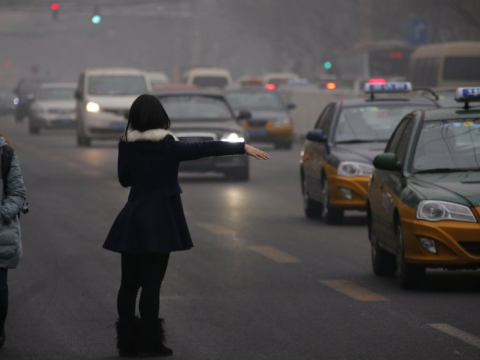Timing is a strange and wonderful part of life, is it not?
Just when a vocal letter sits on the desk of President Xi Jinping's Beijing office from a conglomerate of U.S. technology companies seeking to appeal to the nation's top brass under the banner of the U.S. Chamber of Commerce, the world's most-prominent chipmaker, Qualcomm, is lumped with a near-billion U.S.-dollar fine.
If that was not enough, during a climate of alleged protectionism and disdain for non-Chinese businesses, the shopping list of China's Central Government Procurement Center (CGPC) is struck void of widely known brand names like Apple Inc. and Cisco Systems Inc.
As the Western saying goes, "When it rains, it pours," and the socks of foreign technology executives might have felt a little soggier after the Valentine's Day announcement from China's two leading taxi-hailing apps. Since Feb. 14, 2015, Kuaidi Dache and Didi Dache have been firming up the terms of a merger that sent ripples throughout the world's business pond that only added to the rising water level.
Moreover, the joint undertaking is not pedestrian-grade, as the former is under the banner of Jack Ma's e-commerce giant, Alibaba Group, while the latter could hardly be considered a slouch, boasting the heavy-hitting elevation that its Tencent Holdings cushion provides.
However, for those whose hands were raised in objection by the time the news hit the street, a closer look at the data presented a more complicated picture that lies beyond the combined 99-percent market share that the two taxi-hailing apps reportedly oversee.
As Jixun Foo, managing partner of Shanghai's GGV Capital and an investor in Didi, said, the joint operations of Kuaidi and Didi pale in relation to the nation's overall taxi market. Jixun presented a single-figure estimate--at most, they collectively handle 9 million rides on a daily basis, while a grand total of 50 million taxi rides happen every day in China.
Of course, Lu Chuanwei, the CEO of a smaller competitor, Yidao Yongche, is entitled to file his anti-monopoly lawsuit. But his claim that the competition will suffer, while customers are left in the cold, is unfounded at this stage.
Lu would be wise to display the virtue of patience to see whether the increased focus that Kuaidi and Didi can now apply to their app users--rather than trying to outrageously outdo each other and wasting resources--is actually the gift that Didi's CEO, Wei Cheng, claims it will be.
Another Western saying might be relevant here: "If it is too hot, get out of the kitchen."



























